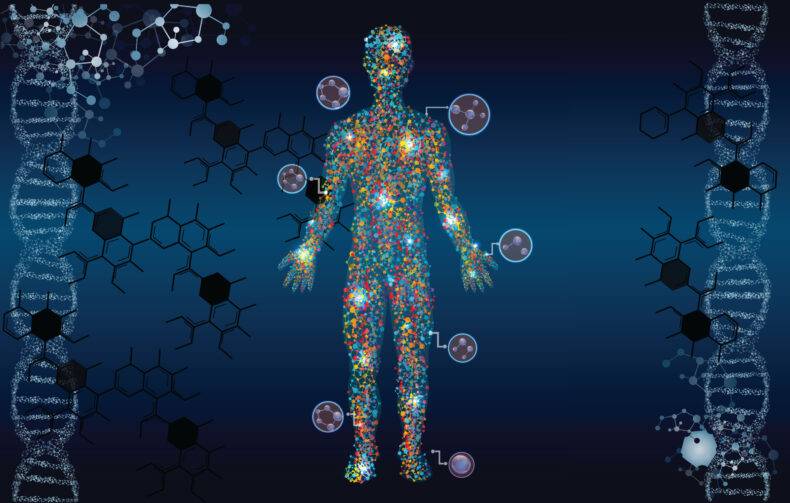A team of researchers has developed a powerful new tool for understanding the complex world of metabolism. The platform, called GeneMAP (Gene-Metabolite Association Prediction), is already yielding important discoveries about how our bodies process essential nutrients.
The study, published in Nature Genetics on July 8, showcases how GeneMAP can identify previously unknown functions of metabolic genes. This breakthrough could have far-reaching implications for our understanding of human health and disease.
Decoding Our ‘Chemical Individuality’
Eric Gamazon, PhD, associate professor at Vanderbilt University Medical Center and senior co-author of the study, explains the motivation behind GeneMAP: “We sought to gain insight into a fundamental question: ‘How does genetic variation determine our “chemical individuality” — the inherited differences that make us biochemically unique?”
This question is crucial because metabolism underpins nearly every aspect of our health. About 20% of our protein-coding genes are dedicated to metabolic functions, yet many of these genes remain poorly understood. Abnormalities in these processes are linked to a wide range of disorders, from neurodegenerative diseases to cancer.
GeneMAP in Action: Uncovering a Mitochondrial Mystery
To demonstrate GeneMAP’s potential, the research team focused on their top finding: a gene called SLC25A48. This gene codes for a mitochondrial transporter, but its exact function was previously unknown.
Using GeneMAP and follow-up experiments, the researchers showed that SLC25A48 is crucial for transporting choline into mitochondria. Choline is an essential nutrient used in many metabolic reactions and in building cell membranes.
The team’s experiments revealed that loss of SLC25A48 impairs mitochondrial choline transport and the production of betaine, a downstream metabolite. They also found eight disease associations linked to this gene-choline relationship by analyzing large-scale biobank data.
“What’s exciting about this study is its interdisciplinarity — the combination of genomics and metabolism to identify a long-sought mitochondrial choline transporter,” Gamazon said. “We think, given the extensive in silico validation studies in independent datasets and the proof-of-principle experimental studies, our approach can help identify the substrates of a wide range of enzymes and transporters, and ‘deorphanize’ these metabolic proteins.”
This study represents a significant step forward in our ability to understand the complex interplay between our genes and metabolism. As researchers continue to explore the potential of GeneMAP, we may uncover new insights into human health and disease, potentially leading to novel treatments and interventions.
The research was supported by various grants from the National Institutes of Health, the Boehringer Ingelheim Fonds PhD Fellowship, and the Damon Runyon Cancer Research Foundation.
If our reporting has informed or inspired you, please consider making a donation. Every contribution, no matter the size, empowers us to continue delivering accurate, engaging, and trustworthy science and medical news. Independent journalism requires time, effort, and resources—your support ensures we can keep uncovering the stories that matter most to you.
Join us in making knowledge accessible and impactful. Thank you for standing with us!

